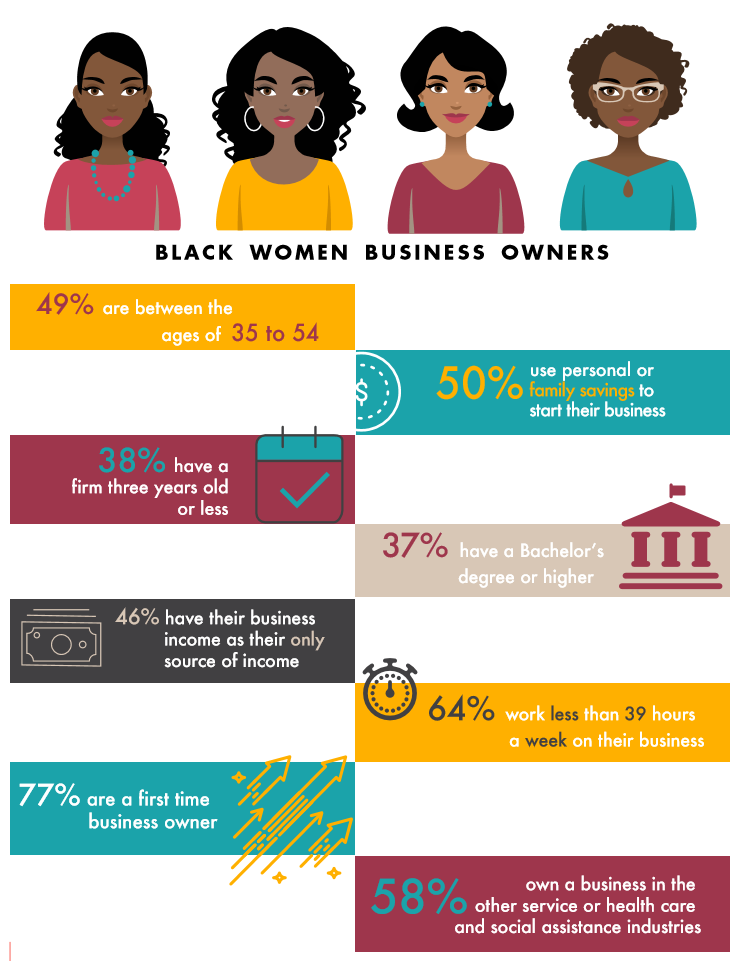According to the US Census from 2002-12, the number of businesses owned by black women increased 179 percent compared with 52 percent for all women-owned businesses and 20 percent for all businesses. Federal Reserve Bank of Kansas City issued a report entitled “Black Women Business Startups” on the results from five focus groups held in 2017 with 34 black women who own businesses in Kansas City, Oklahoma City, Wichita, Omaha, and Denver. During these groups, four questions were asked to determine motivations, challenges, and other characteristics of black women business owners.
Some of the highlights of the conversations are as follows:

The two dominant entrepreneurial characteristics that emerged from the focus groups about black women who own businesses were self-learning and determination. Many women said that starting and running a successful business required them to learn business skills from various sources constantly. Some of this learning consisted of formal classes in the community, for others,it was experiential learning. Determination, or the ability to persist and strive despite obstacles, was also a common theme shared by participants.
The question “Why did you start” was to determine the primary motivations for business ownership by black women. Research suggests a variety of entrepreneurship motivation theories. One standard theory is the push/ pull theory of entrepreneurship. Push motivation occurs when an entrepreneur chooses to start a business in an attempt to escape an adverse situation, such as insufficient household income. Pull motivation occurs when an entrepreneur sees an opportunity, i.e. the desire to start a business in a field they are passionate about or presentation of a business opportunity.
The dominant push motivations for women in the focus groups were workplace challenges. These challenges were broken into four sub themes of treatment, value, uncertainty and general dissatisfaction. Of 25 push comments identified, 22 were related to a workplace challenge. The following sections cover the three largest push themes of workplace treatment, perception of value and general dissatisfaction.
As previously mentioned, pull motivations are opportunity-based motivations that pull an individual into starting a business. While impossible to weigh as a motivating factor relative to push themes, participants’ comments about pull motivations were nearly double the comments about push Federal Reserve Bank of Kansas City 17 motivations. The four main pull motivations identified were passion, opportunity, service and flexibility.
Participants seeking to start their own business stated that their biggest challenge to overcome was acquiring the general knowledge of organizing and operating a business. For some women, the lack of knowledge was about business basics; for others, it was about the industry in which they wanted to start their business. This is consistent with research on the lack of business knowledge among black entrepreneurs at the startup stage.
The final question in the focus group was, “What do you wish was available to you when you started your business?” Participants said they wished for or would recommend four things for black women startups: access to general and specific business knowledge, mentoring, peer engagement, and financial resources. The answers give additional insight into the participant’s startup experience, and recommendations on what black women owners need in their community to help other black women start and grow businesses.
We suggest reading the report, which goes more into depth on how your organization can help black women succeed.
